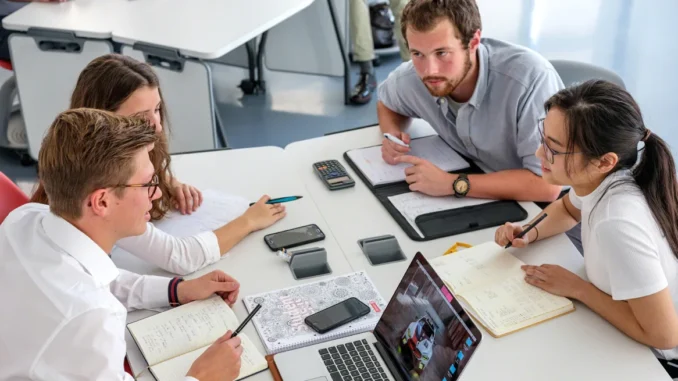
Getting an education is significant, as most career paths need at least certain training and education. Though the decision to continue the education is a private choice, it’s worth considering if experience and knowledge are significant to you. If you have some career goals, you will most likely require an education to attain those goals. Learning the significance of an education does inspire you to grasp more and attain awesome stuff.
Table of Contents
Decide on your career goals.
If you’ve thought about the future at all, you probably have a certain idea of what you need to do as a career. No matter what your aim is, it will probably need a few degrees of education.
Searching online for information about the desired career, or talking to professionals working in that zone. There is a great chance that anyone you talk to will tell you that you’ll require an education in order to enter that space. Note that the type of education you will require might vary: certain fields need formal college education, while others might learn much more towards specialty training in the zone.
Many humans dropped out of school thinking that they would rather work than be in school, but statistics showed that the seniority of high school dropouts are very unemployed and have little or no income source.
Get a good job. Even if the career you’ve selected doesn’t need an advanced education to break down into the zone, you will most likely require an education if you need to get promoted or earn a high-paying job.
Discover better opportunities.
Getting an education opened a lot of professional doors to you. It does support you to grasp new skills, making professional connections, and generally having huger success.
Humans who have completed the education often have much more and great options accessible to them as per their education.
Even if you have not fulfilled a higher school diploma, complete vocational training will likely increase your income level and potential to explore a job. If you have a higher school education and vocational training, you are a pretty attractive job candidate.
Overcoming income inequality.
Research has shown that having an education – even the primary education – do support lower-income workers earning much more money and explore a good economic circumstance.
• Employers looking out for educational achievements. Even having a higher school degree will lessen the risk of unemployment and increase the lifetime earnings of most working adults.
Living a better life.
Beyond the professional options that an education affords humans, having an education might also be connected with living a good life in general. Few studies suggest that humans who stay in school are less likely to end up having legal troubles later in life.
Certain studies suggested that having an education does also make humans much more patient, and therefore less likely to be overcome by violent tendencies.
Follow the approach of question, investigation and review. This usual approach offers plenty of room for analysis, conclusions, discovery and research.
Determining a question.
Making the question an exciting one that sparks the interest and imagination of the class participants. The good questions tend to be those that are huge, interesting, open-ended, and difficult.
Encouraging class participants to consider theories rather than concrete answers. If the question seems unanswered, kids would be encouraged to posit numerous possibilities, push their thinking boundaries.
Broader, hard questions promoting longer and deep discussions.
Provide an occasion to accompany a question. There are numerous possibilities here like reading a small information sheet, showing a video, showing images and playing music or audio, etc., all matters connected to the question. Basically, looking for stuff that sparked curiosity and causes the class participants to need to dig deep and look for the solutions.
Set aside approximately an hour. You might need a little more or less time, that depends on the question, the context and the children involved.
Set aside about a little time for the investigation chunk of the SOLE activity.
Asking the class groups to keep recording of the investigation. This could be drawings, audio recordings, quotes, photos, print-outs, diagrams, etc.––basically, whatever they felt documented the investigation in the manner that explained their findings. These notes will support them to serve their presentation at the next layer.
When the kids are exploring the questions, leaving them to it. The peer helper must support and steer the resolve issues and group. Only step in if it’s really essential during the investigation level.
Troubleshooting
As with anything run with the groups, sometimes the contributor experience is challenged from restraint to conflict. Each requires to be dealt with suitably but in the spirit of getting the contributors to grasp how to manage their own issues, as well as staying aimed on self organization.

Leave a Reply